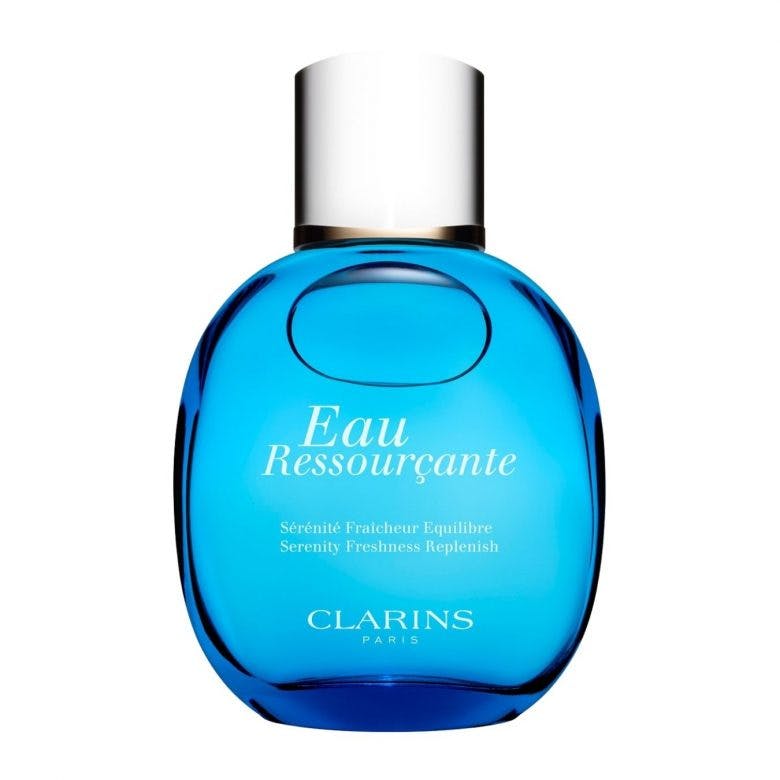Here’s What You Need To Know About Perinatal Mental Health
8 minutes read
It was a month into pregnancy when British Vogue Editor Tish Weinstock noticed things started to get weird.
“During my first trimester, I began to feel listless and empty. I didn’t want to engage in the world; I lost my appetite and shrunk into myself physically and mentally. I didn’t want to see friends and resented them wanting to see me. I would sit on my sofa and be motionless; I couldn’t even engage in Netflix. My partner was away, which didn’t help. I remember being enveloped in a kind of silence.”
Weinstock is an example of what one in five women experience during pregnancy or the first year after birth: perinatal mental health problems or perinatal or postpartum mood and anxiety disorder (PMAD).
New mothers struggle with one common theme – their mental health, compounded by the lack of knowledge surrounding PMAD and maternal mental health, where common questions are “Why didn’t my doctor tell me about this?” And: “Why didn’t my mother, sister, or best friend tell me.”
There are no warnings. And there are no answers or advice that people want to vocalise. After all, every pregnancy and birth is different. So, it’s hard to navigate both giving and receiving or sharing ‘real’ information.
To mark the World Maternal Mental Health Awareness Month, Beauty Daily spoke to global maternal mental health experts about the importance of perinatal mental health, signs and symptoms, and ways to manage mental health during the perinatal period.
What is perinatal mental health?
Perinatal Mental Health is the overarching term for mental health during the perinatal period: from the challenges during a person’s fertility journey and pregnancy to the first year following the birth of a child.

Why is perinatal mental health important?
Transitioning into motherhood can be challenging and overwhelming, adding to the everyday stress coming from work, relationships, and society. It can get overwhelming, and the next thing you know, you’re clouded with so many emotions: anger, grief, frustration, and exhaustion, which can strain your relationships and deprive your baby of the best possible start.
“With any life transition, support is necessary. The transition into motherhood is no exception. Additionally, becoming more aware of maternal mental health struggles can provide others (partners, family, friends) with insight, understanding and empathy. Therefore, it is critical to bring awareness to these quite common struggles so that support is offered or encouraged,” Clinical Psychologist Dr Kelly Vincent tells Beauty Daily.
Research shows that during pregnancy, your baby feels what you feel with the same intensity. So, if you’re sad, happy, or stressed, your baby feels the same emotions as if they were their own.
When you feel happy, it allows your baby to grow in a happy environment. In contrast, emotions like stress and anxiety can increase hormones in your body, affecting your baby’s developing body and brain.
What are the signs and symptoms to look for?
- Feelings of anger, irritability, agitation, anxiety, and isolation
- Lack of interest in pregnancy/baby
- Loss of appetite and sleep disturbance
- Feelings of guilt, shame, or hopelessness
- Loss of interest, joy, or pleasure in things you used to enjoy
- Feeling weepy or crying over seemingly minor things
- Worrying or feeling anxious about your baby’s health and safety
- Persistent feelings of depression
- Loneliness, feelings of burnout
What is the most common perinatal mental problem? Depression, also known as perinatal depression, is the most prevalent mental illness in the perinatal period.
The surprising fact is that pregnant and postpartum people going through emotional distress are often afraid and embarrassed to reach out, even when help is available. A survey by Perinatal Mental Health Partnership UK shows that many feel unable to seek treatment due to perceived stigma.
Most mothers mistakenly think they are failing at parenting, or, in most cases, they aren’t aware that they might need it. “Depression makes you think you’re failing and everyone else is in a ‘happy club’. We want people to know that they are not alone, they are not to blame, and with help, they will feel better,” says Wendy Davis, Executive Director at Postpartum Support International and global awareness organiser.
Who is at risk?
Some of the risk factors for developing perinatal mental health illness are previous history of anxiety and depression.

Weinstock says, “Looking back, the warning signs were there. I had a history of depression but always thought depression was postnatal and anything prenatal was surely just hormones. I decided to seek help from my GP. With my medical history, the risk of prenatal depression was higher than for most. Giving this suffocating feeling ‘a name’ was the first step in my recovery. (I say recovery, but with depression, it’s more about management). After that, I started going for walks outside. I also started seeing a therapist, and eventually, the clouds parted during my 2nd trimester; my appetite returned, and I began to enter the world again. Every time a negative thought about my unborn child invaded my consciousness, I banished it,” she shares.
When people experience depression during pregnancy, they are at an increased risk for continued depression after the birth of their baby. Being aware of your triggers and avoiding them is key to a healthy and happy pregnancy and postpartum.
So, if news, current events, or social media are giving you anxiety, limit your screen time usage, change the channel, or unfollow accounts. In short, filter the amount and quality of information you receive.
How can you manage your maternal mental health during and after pregnancy?
For expecting mums
1. Plan and delegate tasks
Have a plan for what the first few weeks will look like: who’s in charge of cooking, doing the laundry, household duties, groceries, or walking the dog. Delegating tasks and asking for help will reduce overwhelming feelings.
2. Prepare a support list
Prepare a list of your primary support network, so it is at hand when help is needed. This can include your doctor, paediatrician, maternal mental health therapist, support groups, and local and digital organisations.
3. Daily check-ins
Check-in with yourself on a daily or weekly basis when it comes to not only your physical symptoms but how you feel. Check red flags, and track your mood and feelings so that you can access additional support.
4. Engage in self-care
Join prenatal classes like yoga, go shopping, practice mindfulness, strengthen your spiritual health, or simply put on a pretty dress or schedule a home or away spa.
Try booking the Mother-To-Be pregnancy massage. Clarins beauty therapists will indulge you with the gentlest products and relaxing massage movements. It will release muscle tensions, reduce heaviness in the legs and permit you to think about nothing other than yourself (or daydream twinning with your new baby) for the next 60 mins.
Read next: Mum-To-Be Spa Day: 4 Pregnancy Day Spa Treatments To Try
New Mothers
1. Get active
Once you are cleared and feel up to it, try to get moving with your baby. Push yourself and start with a short walk around the block or at the park with your baby in the stroller or carrier. Moving your body can lower stress. Taking a walk outside is proven to help the brain produce happy hormones.
2. Join local or digital support groups
Get connected with a local mother’s support group like Mums Meet Up. When you connect with other mothers, you will feel heard and seen.
3. Get the sleep you need
Even though sleep may seem impossible to get, it is essential to a new parent’s mental wellness and well-being. Sleep is the #1 protective factor against PMADs. So, if you have a partner or a close friend/family member, see if they could take over for a few hours in between feeding so you can catch up on a few hours of sleep.

Make this time extra relaxing for you by misting a chamomile-infused Eau Ressourçante, £40, on your pillowcases and bed linens, or while in bed, quickly massage the temples of your head using this Face Blue Orchid Treatment Oil, £40. This oil has patchouli essential oil known to relieve stress, plus the blue orchid keeps your skin hydrated. Warm a little of the oil between the palms of your hands and inhale the scent.
Exclusive Clarins Gift For Mothers

You are not alone. Maternal Mental Health support is available
Your baby’s future depends on you and the people you are surrounded by.
Maternal Mental Health Awareness Month is a reminder that you’re not alone, and there’s a big community behind rooting for you every step of the way.
“Be kind to yourself, reach out for help, and remember that you are not alone. Expecting and new mothers need to remember that they are going through the biggest transition of their life – physical, emotional, social, and spiritual – and that seeking support is needed and normal to be the healthiest version of themselves,” Davis concludes.
If you think that you are experiencing poor maternal mental health, speak to a trusted friend or family member, especially those that are mothers too. They may have also gone through a similar experience and a helpful resource. Consult with your obstetrician or midwife. If you notice changes in mood and an inability to function in your day-to-day life, it is recommended to seek support. Resources like Maternal Mental Health Alliance, Tommy’s, or a licensed mental health provider trained explicitly in PMADs, are an excellent way to start. You can find more info and support at Postpartum Support International.
Sign up for our newsletter
We will keep you in the loop for special offers, exclusive gifts and product news.

